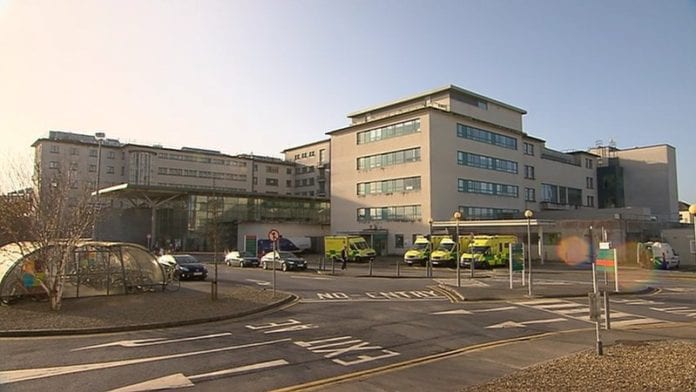Hundreds elderly patients had to wait more than 24 hours at the UHG Emergency Department in the first three months of this year.
New figures from the HSE provided to Fianna Fáil show that 449 people over the age of 75 coming to UHG had to spend more than a day at the emergency department.
The data provided to Fianna Fáil by the HSE only covers the period from January to March of this year, so where the figure currently stands is not available.
The HSE had previously set itself a target of ensuring that all over 75s patients were discharged with 24 hours of presenting at the A&E.
Fianna Fáil Spokesperson on Health, Stephen Donnelly said “The bar was set very low when the target was introduced by the HSE, and yet it has been missed literally thousands of times.”
“These figures are disgraceful and despite the fact that they have decreased on previous years, it’s still not acceptable to have some of our most vulnerable people treated in this manner.”
In total 4,349 over 75’s waited longer than 24-hours in an emergency department in the first three months of 2019 according to the data given to Fianna Fáil.
Donnelly added that sitting in an A&E for a full day is a wearying prospect “even for a person in the full of their health.”
“To have a person, aged over 75, sit in such an uncomfortable and stressful setting for over 24-hours is further compounding their ill-health.”
“A lack of basic bed capacity is a fundamental problem in health care in Ireland and if the Minister can’t get to grips with even the basic problems, three years into his tenure, then we are going to see thousands more over 75’s languish in A&E’s across the country”, he concluded.”
According to the INMO there were over 9,000 people on trolleys in Irish hospitals last month, with 454 in University Hospital Galway.
Though still extremely high, those number are significantly reduced on April and the same period last year.













